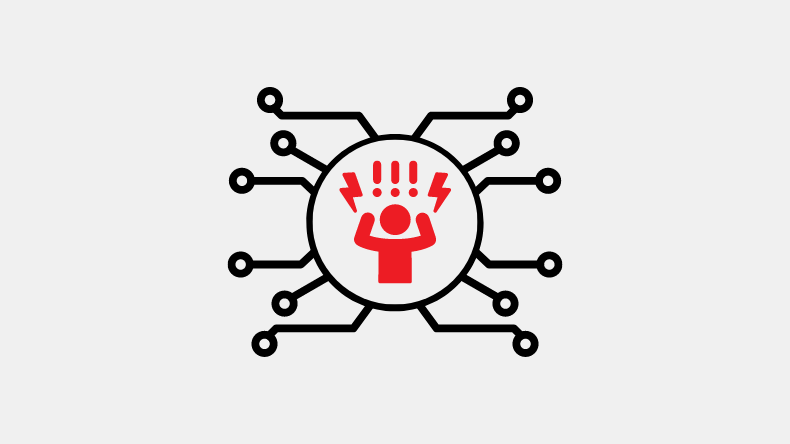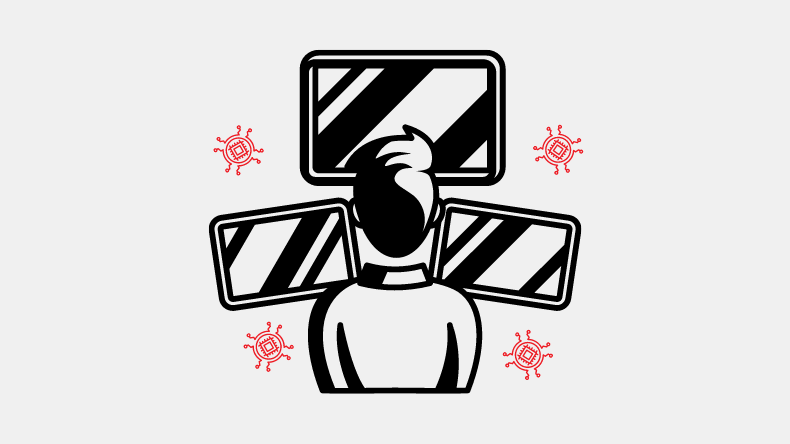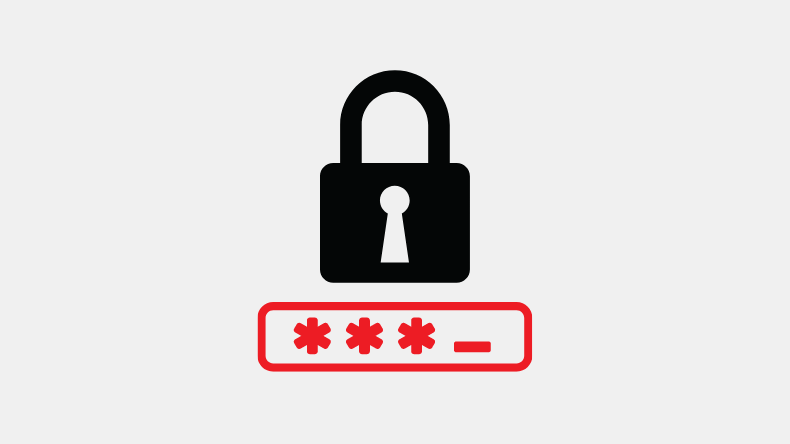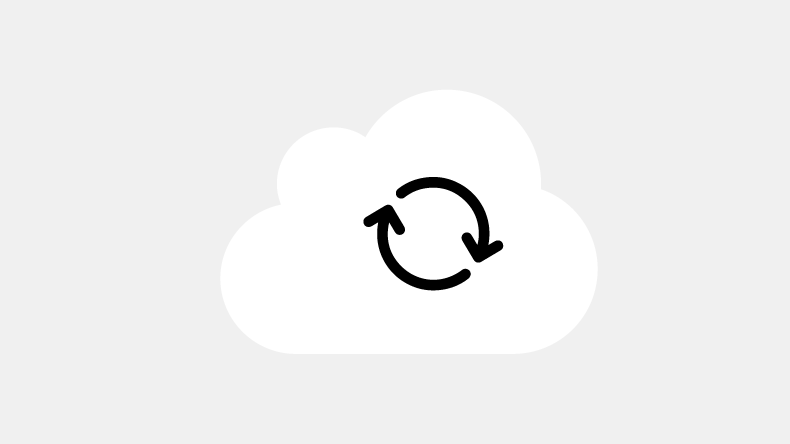Cyberattacks Soar in Q2 2024: What SMEs Need to Know

In recent months, the cyber threat landscape has shifted dramatically, with an alarming rise in cyberattacks, particularly Business Email Compromise (BEC) and ransomware.
A cyber attack can be defined as any attempt to gain unauthorized access to a computer system, network, or data, often with malicious intent.
As detailed in recent reports from Security Online and Talos Intelligence, Q2 2024 has seen a significant increase in these types of attacks.
This surge poses a considerable risk to businesses of all sizes, but SMEs (Small and Medium-sized Enterprises) are particularly vulnerable.
This blog will delve into the details of these reports, examine the implications for SMEs, and provide actionable insights on how to safeguard your business.
Understanding the Threat Landscape
💡Did you know?
“Business email compromise (BEC) and ransomware were the top threats observed by Cisco Talos Incident Response (Talos IR) in the second quarter of 2024, together accounting for 60 percent of engagements.”
Cyber incidents, such as data breaches and theft of sensitive information, have caused significant disruptions to government services and other critical infrastructures, highlighting the evolving nature of these threats in our increasingly digital landscape.
Business Email Compromise (BEC) and Phishing Attacks
BEC attacks have become increasingly sophisticated, with cybercriminals leveraging social engineering techniques to deceive employees and gain unauthorized access to computer systems, allowing them to transfer funds or steal sensitive information.
According to the Security Online report, BEC attacks accounted for a significant portion of the cyberattacks in Q2 2024. These attacks typically involve impersonating a trusted contact, such as a senior executive or a business partner, to trick the recipient into complying with the fraudulent request.
Ransomware and Ransomware Attacks
Ransomware attacks have also surged, with Talos Intelligence noting a notable rise in such incidents during the same period. Ransomware is a type of malicious software that encrypts the victim’s data, rendering it inaccessible until a ransom is paid.
The consequences of a successful ransomware attack can be devastating, leading to significant financial losses, operational disruption, and reputational damage.
The Impact on SMEs
SMEs are often targeted by cybercriminals due to their perceived lack of robust cybersecurity measures compared to larger enterprises.
Many cybercriminals seek financial gain through methods such as data theft, business disruption, and extortion, illustrating how this motive drives various cyber offenses, from stealing sensitive information to executing ransomware attacks.
The impact of a cyberattack on an SME can be particularly severe due to limited resources and recovery capabilities. Here are some key risks that SMEs face:
Financial Loss
The financial implications of a cyberattack can be crippling for SMEs. Cybercriminals often steal data to cause financial loss, whether through direct financial fraud, ransom payments, or the cost of remediation and recovery, the financial burden can be substantial. Additionally, regulatory fines for data breaches can further exacerbate the financial strain.
Operational Disruption
Cyberattacks can disrupt business operations, leading to downtime and loss of productivity. For SMEs, even a short period of downtime can have a significant impact on revenue and customer satisfaction. DDoS attacks can cause operational disruption by overwhelming systems with traffic, making services unavailable. Ransomware attacks, in particular, can halt business operations entirely until the issue is resolved.
Reputational Damage
Trust is a critical component of business relationships. A cyberattack can damage the reputation of an SME, leading to a loss of customers and business partners. The long-term effects of reputational damage can be far-reaching, affecting the business's ability to attract new customers and retain existing ones.
Best Practices for SMEs
Given the increasing threat landscape, SMEs must adopt robust cybersecurity measures to protect their assets and ensure business continuity. Intrusion detection systems (IDS) play a crucial role in network security by identifying and responding to potential threats, complementing Web Application Firewalls (WAFs) to offer protection against application layer attacks. Here are some best practices that SMEs should consider:
Employee Training and Awareness
One of the most effective ways to prevent BEC, phishing attacks, and other social engineering attacks is through employee training.
Ensure that all employees are aware of the common tactics used by cybercriminals and know how to recognise suspicious emails and requests. Regular training sessions and simulated phishing exercises can help reinforce this knowledge.
Implement Strong Password Policies
Encourage employees to use strong, unique passwords for their accounts and enable multi-factor authentication (MFA) wherever possible.
MFA adds an extra layer of security by requiring a second form of verification in addition to the password.
Regular Software Updates and Patching
Keeping software and systems up to date is crucial in preventing cyberattacks. Regularly apply patches and updates to address known vulnerabilities. This includes operating systems, applications, and security software.
Backup and Recovery Solutions
Implementing a robust backup and recovery strategy is essential in mitigating the impact of a ransomware attack, especially when it comes to protecting sensitive data. Regularly back up critical data and ensure that backups are stored securely and are not connected to the main network. Test your backup and recovery processes regularly to ensure they are effective.
Email Security Measures
Invest in email security solutions that can detect and block phishing emails and other malicious messages. Advanced email filters, spam detection, and anomaly detection can help prevent BEC attacks and other email-based threats.
Network Segmentation
Segment your network to limit the spread of malware in the event of an attack. By dividing your network into smaller segments, you can contain the damage and prevent attackers from gaining access to the entire network.
Why Cybersecurity is a Shared Responsibility
Cybersecurity is not just the responsibility of the IT department; it is a shared responsibility that involves everyone in the organisation.
The vulnerabilities and interdependence of computer systems make them prime targets for cybercriminals, who exploit these weaknesses to achieve their malicious goals.
From senior management to frontline employees, everyone has a role to play in maintaining a secure environment.
Encouraging a culture of cybersecurity awareness and vigilance is crucial in defending against cyber threats.
The Role of Managed Security Services
For SMEs with limited in-house cybersecurity expertise, partnering with a managed security service provider (MSSP) can be a game-changer.
Government agencies, which are often targeted by cyberattacks, also benefit from the protection provided by MSSPs, highlighting the importance of safeguarding governmental operations from increasing cyber threats.
MSSPs can offer comprehensive security solutions, including threat monitoring, incident response, and vulnerability management.
By leveraging the expertise of an MSSP, SMEs can enhance their security posture without the need for significant investment in internal resources.
Responding to Cyber Incidents
The surge in cyberattacks in Q2 2024 serves as a stark reminder of the evolving threat landscape.
For SMEs, the stakes are high, and the need for robust cybersecurity measures has never been greater.
By implementing best practices, fostering a culture of security awareness, and leveraging the expertise of managed security service providers, SMEs can protect their assets, ensure business continuity, and safeguard their reputation.
Don't wait until it's too late. Take proactive steps to secure your business today. Are you confident that your cybersecurity measures are up to the task? If not, what steps will you take to enhance your security posture?
Here to Help
At Acora One, we understand the unique cybersecurity challenges faced by SMEs. Our tailored solutions can help you navigate the complex threat landscape and protect your business from cyber threats.
Contact us today to learn more about how we can help you secure your business.
Back to the blog.





